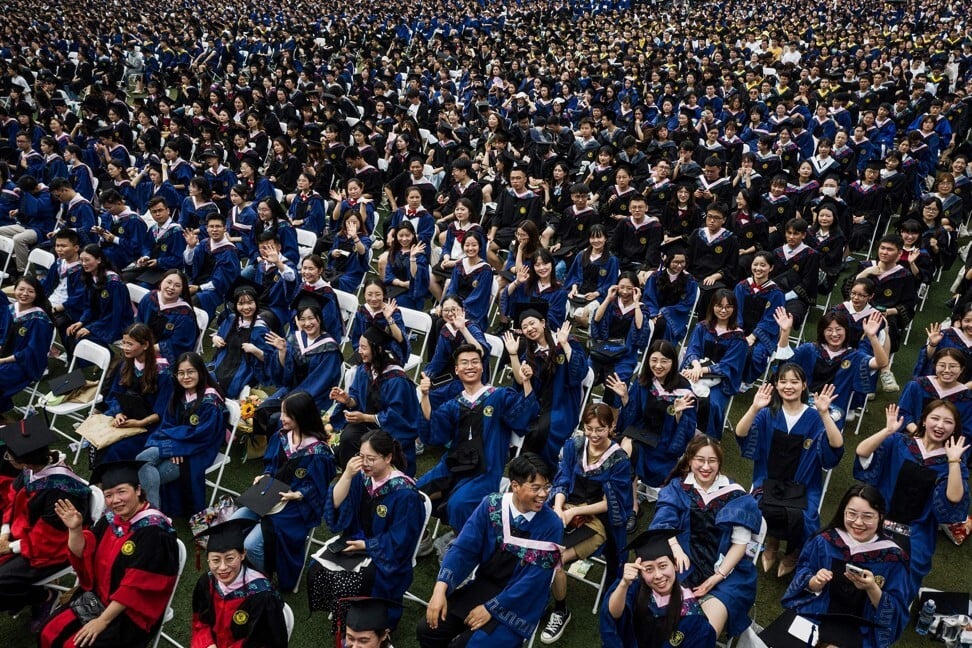
China’s Big Tech still most attractive employer for university students despite Beijing’s scrutiny of the sector
- Huawei and Alibaba ranked as the two most attractive employment destinations for mainland Chinese university students, a new survey says
- Tencent, ByteDance, Xiaomi, Baidu and JD.com also ranked high as students’ preferred employers

That segment of China’s economy amounted to 39.2 trillion yuan (US$6 trillion) last year, an increase of 3.3 trillion yuan from 2019, according to the white paper Digital Economy Development in China (2021), published in April by the China Academy of Information and Communication Technology, a think tank affiliated with the Ministry of Industry and Information Technology.
A report published last year by Boss Zhipin, operator of a popular online recruitment platform, found that college graduates who have tech and live-streaming skills are the most in-demand, as the country continues to deal with disruptions caused by the pandemic.
Why 996 prevails in China’s tech world despite deaths and protests
Still, university students who get employed in China’s Big Tech must eventually deal with the dark side of working for the industry. The culture of 996 – working from 9am to 9pm, six days a week – has become an unwritten standard for many of the country’s tech firms.
A survey of 339 companies across all industries found that 5.4 per cent of those in the tech sector experienced job cuts, while 12.9 per cent reduced the number of their contractors, interns, part-time employees and outside experts, according to a report released last year by professional services firm Aon.
Those issues, however, have made civil service jobs – known for their regular hours and other perks –more appealing to China’s university graduates.

